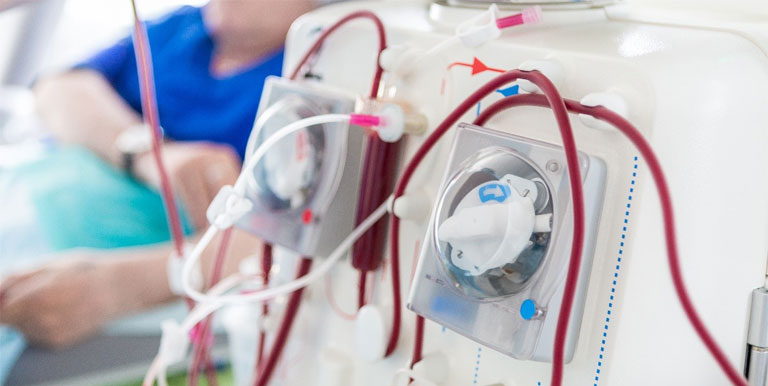Dialysis is a life-saving treatment for individuals with kidney failure, allowing them to filter waste and excess fluids from their body. However, dialysis can also be physically and mentally exhausting, leaving patients feeling drained and fatigued. Dialysis fatigue is a common challenge faced by many individuals undergoing regular dialysis sessions, which can significantly impact their quality of life. In this blog post, we will discuss the causes of dialysis fatigue and provide you with five practical tips to conquer dialysis fatigue and regain your energy.
Causes of Dialysis Fatigue:
Dialysis fatigue can have various causes, including the physical and emotional toll of the dialysis process itself, as well as the underlying health conditions that led to kidney failure. Here are some of the primary causes of dialysis fatigue:
Anemia: Anemia is a common complication of kidney failure, where the body lacks enough red blood cells to carry oxygen to the organs and tissues, resulting in fatigue and weakness.
Electrolyte imbalances: Dialysis can disrupt the balance of electrolytes in the body, such as sodium, potassium, and calcium, which are essential for maintaining optimal body functions. Imbalances in these electrolytes can cause fatigue and other symptoms.
Fluid shifts: During dialysis, fluids are removed from the body, which can cause changes in blood volume and fluid balance. These shifts can lead to dehydration, which can contribute to fatigue.
Nutritional deficiencies: Dialysis can affect appetite and nutrient absorption, leading to nutritional deficiencies. Lack of essential nutrients, such as iron, vitamin B12, and vitamin D, can result in fatigue.
Emotional stress: Living with kidney failure and undergoing regular dialysis treatments can be emotionally draining. The stress and anxiety associated with managing a chronic condition can contribute to feelings of fatigue and exhaustion.
Tips to Conquer Dialysis Fatigue and Improve Your Quality of Life:

1. Follow a Balanced Diet:
Eating a well-balanced diet is crucial for managing dialysis fatigue. Consult with a registered dietitian who specializes in kidney health to create a personalized meal plan that meets your unique nutritional needs. A diet that is rich in essential nutrients, such as iron, and vitamins like B12 and D, can help address any deficiencies and improve your energy levels. Incorporate a variety of foods, including lean protein sources, whole grains, fruits, vegetables, and healthy fats, to ensure you are getting a well-rounded diet.
2. Stay Hydrated:
Dehydration can worsen dialysis fatigue, so it’s essential to stay adequately hydrated. During dialysis, fluids are removed from the body, which can cause fluid shifts and increase the risk of dehydration. Make sure to drink enough fluids, such as water or unsweetened herbal tea, throughout the day to maintain proper hydration levels. Be cautious with fluids that are high in sugar or caffeine, as they can cause additional fluid imbalances and lead to increased fatigue.
3. Exercise Regularly:
Physical activity may be the last thing on your mind when you’re dealing with dialysis fatigue, but regular exercise can help improve your energy levels and overall well-being. Engaging in regular physical activity can help strengthen your muscles, improve your cardiovascular health, and boost your mood. Start with low-impact exercises, such as walking or swimming, and gradually increase your activity level based on your capabilities and guidance from your healthcare provider.
4. Prioritize Rest and Sleep:
Getting enough rest and quality sleep is essential for managing dialysis fatigue. Listen to your body and prioritize rest when you feel tired. Avoid overexertion and try to establish a regular sleep routine that includes enough hours of uninterrupted sleep at night. Create a calming bedtime routine, such as reading a book or practicing relaxation techniques, to help you unwind and prepare for a good night’s sleep.
5. Seek Emotional Support:
Managing a chronic condition like kidney failure and undergoing regular dialysis treatments can take a toll on your emotional well-being, which can contribute to dialysis fatigue. It’s essential to seek emotional support from friends, family, or a professional counselor to help you cope with the emotional challenges of dialysis.
In conclusion, dialysis fatigue is a common challenge that many individuals with kidney failure face. However, by implementing simple lifestyle changes and seeking support, it is possible to conquer dialysis fatigue and regain energy for a better quality of life. Incorporating a balanced diet, staying hydrated, exercising regularly, prioritizing rest and sleep, and seeking emotional support can all contribute to managing dialysis fatigue effectively. It is important to work closely with your healthcare provider to develop a personalized plan that fits your specific needs and capabilities. Remember, small changes can make a big difference, and taking steps to improve your energy levels can help you feel more empowered and motivated to live a fulfilling life despite undergoing dialysis treatments.
Remember, it is essential to communicate with your healthcare team, including the Southwest Kidney Institute physicians or any other trusted healthcare provider, and follow their recommendations for managing dialysis fatigue. They can provide personalized advice and guidance based on your individual needs and health condition. With their expertise and support, you can take proactive steps toward conquering dialysis fatigue and improving your overall well-being.
So, if you are feeling exhausted from dialysis, don’t lose hope. With the right strategies, lifestyle changes, and healthcare team by your side, you can overcome dialysis fatigue and lead a more fulfilling life, full of energy and vitality.

